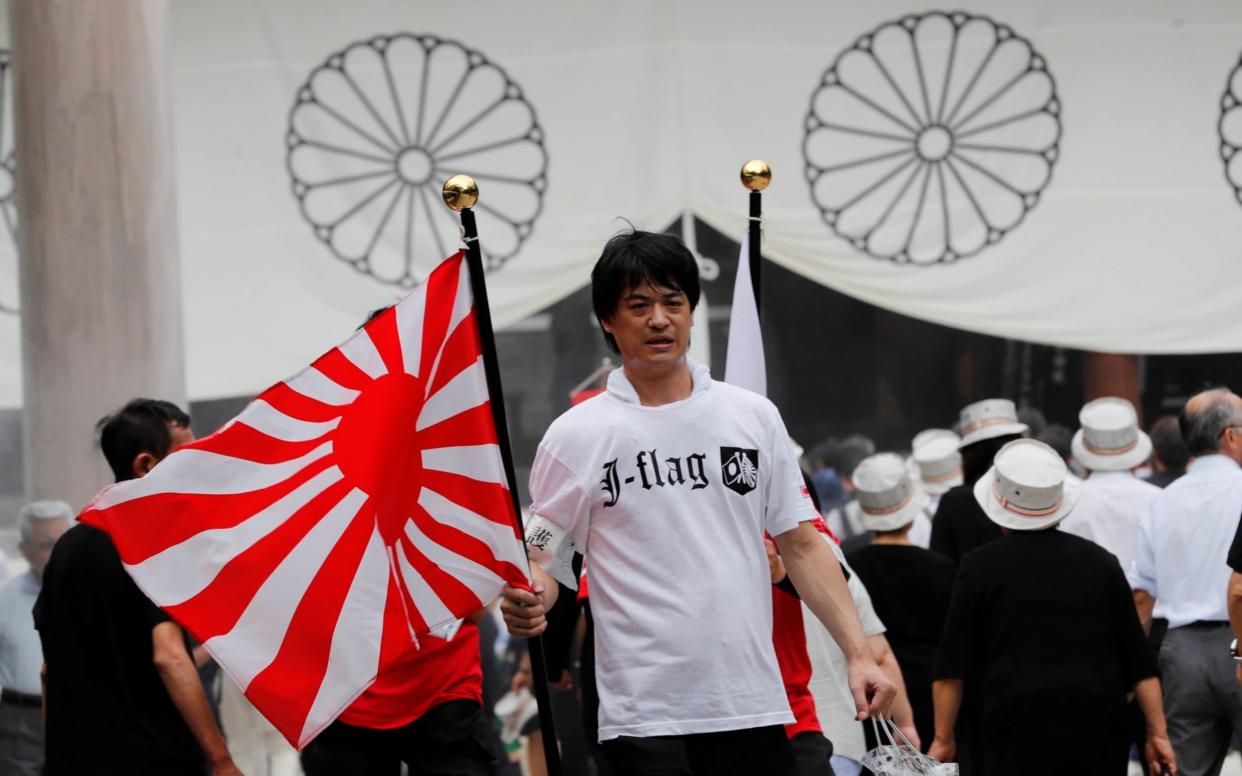Japan refuse to ban colonial rising sun flag at Olympics as spat with Korea deepens

South Korea has condemned Japan’s refusal to ban images of the former imperial flag of the rising sun from the Tokyo Olympic Games next summer, as relations between Seoul and Tokyo continue to sour.
South Korea’s foreign ministry on Tuesday called on the organisers of the 2020 Games and the International Olympic Committee to forbid depictions of a flag that is widely associated with Imperial Japan’s conquest and occupation of large parts of the Pacific and mainland Asia in the 1930s and 1940s.
The committee rejected the request, the Sankei Shimbun reported, on the grounds that it does not believe the flag serves as political propaganda.
An Min-suk, a member of the ruling Democratic Party and head of the South Korean government’s Culture, Sport and Tourism Committee, claimed in a radio interview on Wednesday that the decision “violates the spirit” of the Olympic Games.
If Japan violates the IOC spirit that separates sport from politics, the games will be “the most shameful event since the 1936 Nazi Olympic”, he said.
Mr An went on to call on other countries in the region to support Seoul’s position on the matter and to “denounce” Japan. The first country that the South should link up with is North Korea, he added.
“We will first ask North Korea to band together”, the JoongAng Daily newspaper reported. “I think it would be a good opportunity for both Koreas to overcome the ongoing stalemate”.
South Korea and Japan are locked in a bitter dispute about historical issues that has spilled over into the economic realm.
Tokyo has taken exception to South Korean courts permitting compensation suits to go ahead against Japanese companies that used Korean forced labourers during the 1910-1945 occupation of the peninsula.
Japan says all compensation claims were settled under the 1965 treaty that normalised relations between the two nations and saw Tokyo pay $500 million in compensation.
Accusing the left-leaning government of Moon Jae-in of failing to abide by the agreement, Japan has imposed export restrictions on chemicals critical to South Korea’s microchip industry. Seoul has retaliated by withdrawing from a military information sharing agreement and imposing export restrictions of its own.
Sections of the public in both countries have been quick to respond to the political row, with South Koreans boycotting popular Japanese brands, from Kirin beer to Toyota cars, and cancelling holidays in Japan.
A Japanese tourist was assaulted late last month by a man as she walked along a street in Seoul, with the footage going viral on social media sites.
Last week, a letter containing a bullet and a letter threatening to “hunt” Koreans was delivered to the South Korean Embassy in Tokyo.

